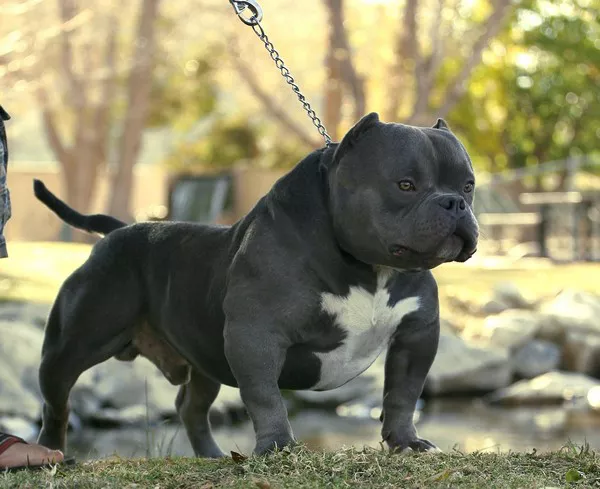Welcoming a pocket bully puppy into your home is an exciting journey, and ensuring their health and growth starts with the right nutrition. In this comprehensive guide, we’ll explore the best food options for pocket bully puppies to support their development, energy levels, and overall well-being. From understanding their nutritional needs to selecting the right type of food, we’ve got you covered.
1. The Nutritional Needs of Pocket Bully Puppies
Pocket bully puppies, like all growing dogs, have unique nutritional requirements to support their rapid growth and development. It’s crucial to provide them with a well-balanced diet that includes essential nutrients for optimal health.
2. Essential Nutrients for Pocket Bully Puppies
Proper nutrition is the foundation of a healthy pocket bully puppy. Here are some essential nutrients that should be present in their diet:
Protein: Protein is a building block for muscle and tissue development. Look for puppy food with high-quality animal protein sources like chicken, turkey, or beef.
Healthy Fats: Fats provide energy and support skin and coat health. Omega-3 fatty acids, found in fish oil, can aid in cognitive development and joint health.
Calcium and Phosphorus: These minerals are crucial for bone growth and development. However, the right balance is key, as an excess can lead to skeletal issues.
Vitamins and Minerals: A variety of vitamins and minerals, such as vitamin D, vitamin E, and zinc, play roles in immune function, vision, and overall well-being.
3. Choosing Between Commercial and Homemade Diets
When it comes to feeding your pocket bully puppy, you have the option of choosing commercial puppy food or preparing homemade meals. Both approaches have their benefits, but it’s important to ensure that the chosen diet meets your puppy’s nutritional requirements.
Commercial Puppy Food: High-quality commercial puppy food is formulated to provide balanced nutrition. Look for options labeled as suitable for “puppy growth” and read ingredient labels to ensure quality ingredients.
Homemade Meals: If you opt for homemade meals, consult with a veterinarian or a canine nutritionist to create a well-balanced diet that includes all necessary nutrients. Avoid ingredients that may be toxic to dogs, such as onions, garlic, and grapes.
4. Transitioning to Solid Food
If you’re bringing home a young pocket bully puppy, they might still be transitioning from their mother’s milk to solid food. Introduce solid food gradually to avoid digestive upset.
Start Slowly: Begin by mixing a small amount of puppy food with milk replacer or warm water to create a soft and easily digestible gruel.
Gradual Transition: Over the course of several days, gradually increase the ratio of puppy food to milk replacer until your puppy is eating solid food exclusively.
5. Feeding Frequency and Portion Control
Understanding how often and how much to feed your pocket bully puppy is essential for their growth and health.
Age Matters: Young puppies require frequent meals, typically three to four times a day. As they grow, you can gradually reduce the frequency to two to three meals.
Portion Control: Follow the feeding guidelines on the puppy food packaging as a starting point. Adjust the portion size based on your puppy’s age, weight, and activity level.
6. Monitoring Your Pocket Bully Puppy’s Health
Regularly monitoring your pocket bully puppy’s health and growth is vital. Pay attention to their coat condition, energy levels, stool quality, and overall demeanor.
Consult Your Veterinarian: If you have concerns about your puppy’s nutrition, growth, or any health issues, consult your veterinarian. They can provide guidance tailored to your puppy’s specific needs.
Regular Vet Visits: Schedule regular veterinary check-ups to ensure your puppy’s overall health and development are on track.
Conclusion
In conclusion, providing the best food for your pocket bully puppy is an investment in their long-term health and well-being. By understanding their nutritional needs, selecting the right type of food, and ensuring a gradual transition to solid food, you’re setting your puppy up for a healthy life ahead.


